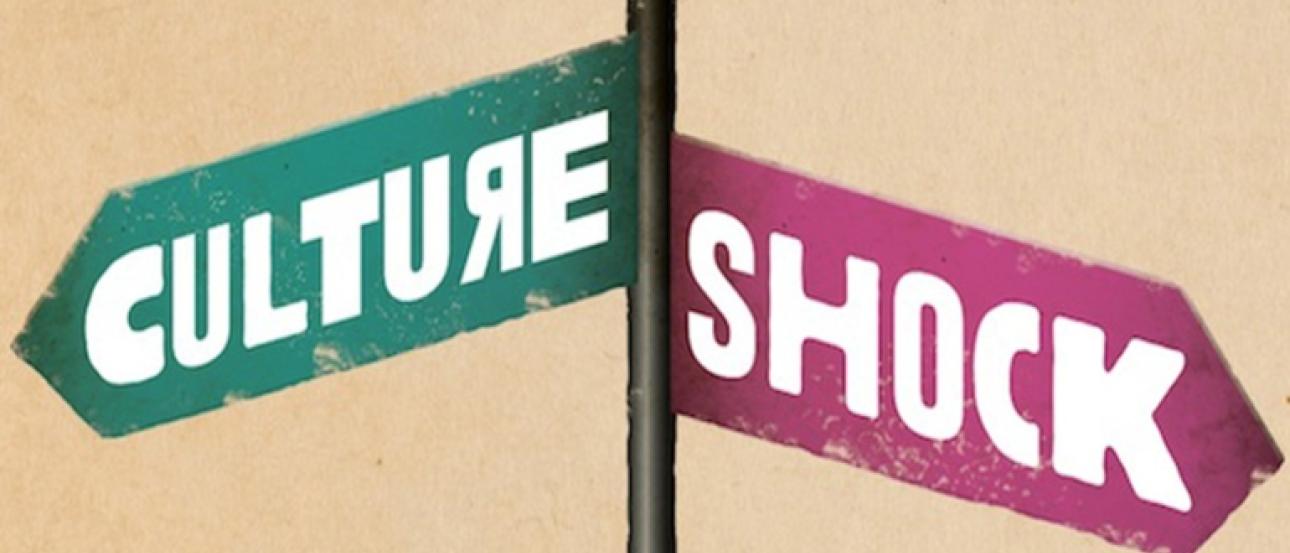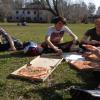For some reason, I thought I would not experience culture shock. Perhaps this was because I did not experience it when I traveled with a group to Scandinavia a few summers ago. The reason that this time is different is because I live in Buenos Aires; I am not simply a tourist. Culture shock is sometimes so subtle that you do not even notice it until afterwards. It is hard to recognize because it wears many colors. It begins with the first day. Arriving sleep deprived, straight off the airplane, the first thing that hit me was the language and the idea of living with people I did not know. I thought to myself, “What am I doing here? Why on earth did I do this?” The first day was so overwhelming. The cure I found for this first dose of culture shock was making friends. The six other people in the program are my lifeboat. I believe that we will all support each other through this program. We have done this the first couple of days by planning outings and evening get-togethers, walking to the center and back together, and creating a group chat for open communication. Even though I want to speak more Spanish than English, I found it beneficial to connect with others. Going out for drinks my second night in the city was a breath of fresh air. There is great comfort in knowing that there are others in similar situations.
The second thing I want to address is an update on my fears for this trip. I had an amazing conversation with the person sitting next to me on my flight to Argentina. As we talked, they noticed my nervousness for the trip and offered some advice. That advice was to give myself a break, to give myself time to adjust before pressuring myself into Spanish perfection. While close family and friends have told me this time and time again, hearing it from a stranger had a different impact. While it is still the first week of the program, and there is no way to predict the outcome, I feel more at ease with whatever Spanish fluency I return with, even if it is not what I originally hoped for. This conversation is also a good example of being open to experiences. If I had not begun the conversation, and simply put on my headphones for the ten-hour flight, I would not have gotten exactly the advice that I needed.
One cultural difference that I want to mention about Buenos Aires is the concept of time. In Argentina, there is less of a rush, less of a need to be on time or early. The mindset is that in the end everything will work out one way or another, that you will get there when you get there. My host parents continually tell me Tranquila, because my instinct is to stress about the time. It is another aspect of culture shock to adjust to, but if I can learn to adjust to the Argentinian concept of time, it might help me later down the road. Mentally, it is the idea that nothing is so important that you should stress so much about it. That is a great lesson for me to learn, and I plan to put in a conscious effort to learn it. This is a good lesson for all Americans to learn, probably. Sit back, take a breath, and do not worry about the outcome; sometimes you just need to enjoy your breakfast and be late, rather than rush, stress, and be on time.

Alesha Garand
I am an elementary education student; with a Spanish minor, ESOL (English for Speakers of Other Languages) endorsement, and leadership certificate. My passions focus on exploring new cultures. Recently I explored Philippian culture through Tinikling (a form of dance) and Spanish through reading various Latin American authors. I also enjoy expressing myself through art, particularly painting. My mission is to become a dual language education teacher (with Spanish and English) so that I can spread a love and appreciation for culture and language to my future students.






